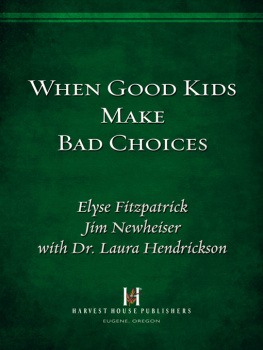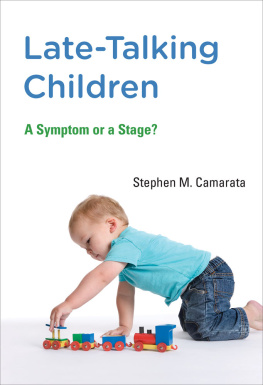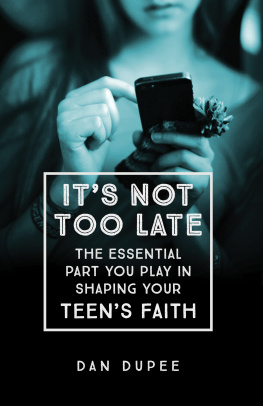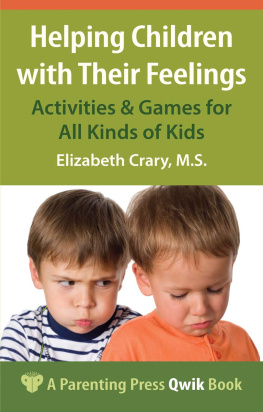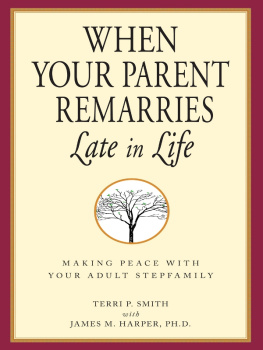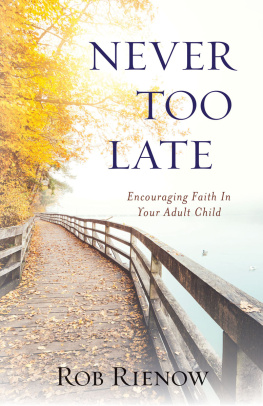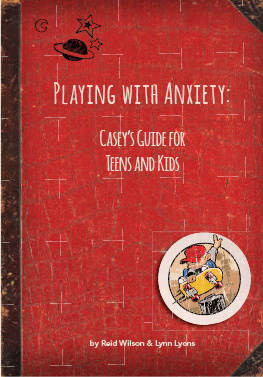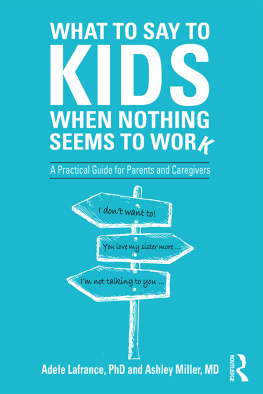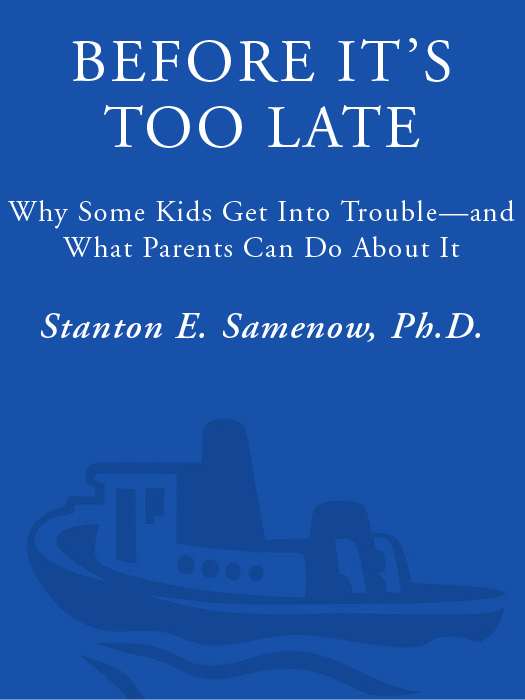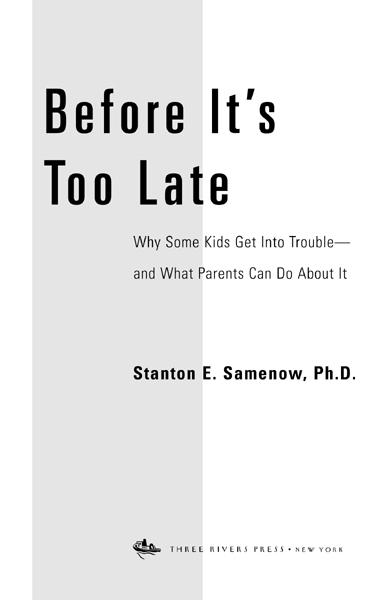Also by Stanton E. Samenow, Ph.D.:
Inside the Criminal Mind
Straight Talk About Criminals
Coauthored with Samuel Yochelson, M.D.:
The Criminal Personality: A Profile for Change
The Criminal Personality: The Change Process
The Criminal Personality: The Drug User
Copyright 1989, 1998, 2001 by Stanton E. Samenow, Ph.D.
All rights reserved. No part of this book may be reproduced or transmitted in any form or by any means, electronic or mechanical, including photocopying, recording, or by any information storage and retrieval system, without permission in writing from the publisher.
Published by Three Rivers Press, New York, New York. Member of the Crown Publishing Group.
Random House, Inc. New York, Toronto, London, Sydney, Auckland
www.randomhouse.com
THREE RIVERS PRESS is a registered trademark and the Three Rivers Press colophon is a trademark of Random House, Inc.
Originally published in hardcover in 1989 and 1998 by Times Books.
Library of Congress Cataloging-in-Publication Data
Before its too late: why some kids get into troubleand what parents can do about it / Stanton E. Samenow.rev. ed.
1. Problem childrenUnited States. 2. Child rearingUnited States. 3. Juvenile delinquencyUnited StatesPrevention. 4. Deviant behavior. Child psychology. I. Title.
HQ773.S215 1998
649.153dc21 98-15285
eISBN: 978-0-307-79053-8
v3.1
I N MEMORY OF MY MOTHER ,
S YLVIA L. S AMENOW ,
FOR HER HELP IN LIFE AND WITH THIS BOOK
A Note to the Reader
L ike all children, the antisocial child requires much love, patience, and compassion. The assumption often is made that a youngster becomes delinquent because he was not nurtured adequatelythat he is a product of uncaring, indifferent, and irresponsible parents.
In families where the parents are unloving and otherwise inadequate, the children are likely to experience a variety of difficulties, but not all of these children turn to crime. Most of the mothers and fathers who have consulted me have demonstrated a profound capacity to love. That love has been tested repeatedly by a child whose self-appraisal is not based on being cherished by his parents or on his own constructive achievements, but rather on getting away with that which is forbidden and, to him, highly exciting. Warm and loving though his environment may be, he grows increasingly restless, disagreeable, and disobedient. As the years pass, he becomes destructive to himself and others.
Parents of antisocial children feel bewildered and helpless as their offspring reject their guidance and, eventually, become lawbreakers. Many of these mothers and fathers have declared that they would make virtually any sacrifice to help their child become self-disciplined, constructive, and happy. They are heartsick at being reduced to ineffective bystanders as their offspring throw away their lives. Undeservedly, the parents of these children brand themselves as failures.
Having had another decade of experience evaluating and counseling antisocial youngsters and their families, I decided to write an updated version of this book. In addition to contacts with parents and their children who have consulted me both locally and from other regions of the country, I have learned more about childhood antisocial behavior from other perspectives. By serving as an independent evaluator in dozens of highly contested child custody cases, I have viewed firsthand how antisocial children exploit the situation when their families break up. A rich source of information has been what I have learned during my travels throughout North America speaking to professional and lay groups. In forty-eight states, Canada, and England, I have exchanged ideas with professionals in corrections, mental health, education, law enforcement, substance abuse, and many other fields concerned with the evaluation and treatment of juvenile offenders. I have served as an expert witness in juvenile courts and have had productive exchanges with judges while addressing judicial conferences.
This book may seem tough, even harsh, in its tone and approach. I say little about affection, warmth, and a nurturing attitude. What I emphasize is that parents of antisocial children must combine with love and caring, stern measures that, at times, are at odds with their own concepts of good parenting. My objective in writing the book has been to communicate what it takes for a parent to institute a toughyet lovingapproach that can assist this particular type of child in developing an enduring sense of self-worth and self-respect.
Contents
Introduction
U pon starting this book, you, the reader, may wonder if you are encountering one more psychologist who blames parents for the misbehavior of their offspring. The answer is emphatically no! My central premise is that children become antisocial by choice: lying, fighting, stealing, and other forms of destructive behavior are willful acts.
But parents can take steps to prevent antisocial behavior from developing into an entrenched pattern. If a child is regularly manifesting such behavior, it may not be too late for corrective action. Before taking preventive or corrective measures, however, it is essential that parents fully understand what is involved.
Although few people would dispute the importance of preventing antisocial behavior, a heated controversy rages about whether prevention can or should be undertaken if it entails identifying children at risk when they are quite young. In the first chapter, I shall discuss this issue: Is the possibility of misidentifying children sufficient reason to place a complete moratorium on early identification and prevention? Afterward I shall discuss extreme manifestations of antisocial patterns.. They will learn that a difference does exist between a phase of development or occasional, relatively innocuous misconduct, and a pattern of behavior that should serve as a red flag to those involved in rearing the child. Once early manifestations of antisocial behavior are recognized, it is possible to work toward preventing these from becoming fixed patterns.
Subsequent chapters will focus on errors that parents and others make as they encounter the forerunners of antisocial behavior. Here the emphasis is upon both prevention and remediation. In these chapters, I offer guidance to parents about how to help their children modify and eliminate behavior that shows signs of becoming increasingly destructive to themselves and others early on. To parents with older children who are displaying entrenched patterns of antisocial behavior, I offer suggestions to help them cope more effectively. It may be tempting to skip immediately to the suggested remedial measures. But to do so would be as inadvisable as a surgeons cutting into a patient before studying anatomy and physiology. In fact, it is vitally important to know exactly what requires correction, and why, before one tries to take such action.
As any person who has raised a child knows, children make choices from the time they are very young. The toddler chooses whether or not to obey parental orders forbidding him to touch valuable household possessions. The child who has knocked over a lamp chooses whether or not to admit that he did it or to blame the cat. As time passes, the choices become more numerous and complex. Parents are often wrongly faulted for


